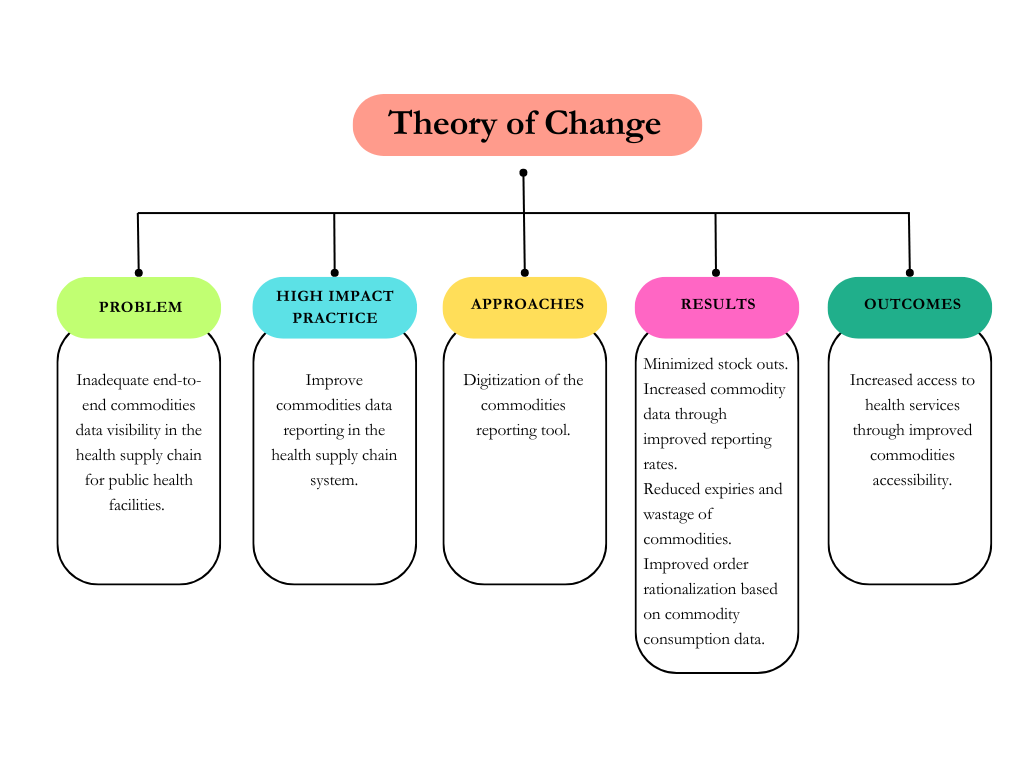Efficient management of health commodities forms the foundation of healthcare provision. Challenges related to commodity security persist as a major concern in public hospitals across the nation, posing a significant obstacle to achieving the universal health coverage goal. The repercussions of inadequate commodity security manifest in erratic supply of essential health items. Achieving a steady and reliable flow of health commodities becomes unattainable in environments where data for decision-making is scarce and of subpar quality, thereby impacting forecasting and quantification processes. Identifying the underlying causes and consequences of poor commodity security is crucial for implementing measures to mitigate risks and safeguard against shortages in medical supplies.
Introducing QualiPharm:
Health Strat designs and deploys innovative tools to identify systemic gaps and design context specific solutions that are adaptable, scalable, and sustainable. QualiPharm is one such innovation. The tool, which is a digitized representation of the manual Kenya Facility Consumption Data Reporting and Requesting (FCDRR) form allows health workers to collect, manage and use data more efficiently for decision support. This mobile application is compatible with both android and iOS devices, aiming to streamline reporting processes while delivering real-time, high-quality data across all levels of the supply chain. Implemented in 21 counties and over 1,300 facilities, QualiPharm has successfully enhanced data accuracy and visibility, alleviated reporting burdens, facilitated integration of supply chain systems, and curbed instances of pilferage within healthcare facilities. Notably, the application’s capability to track and flag errors has resulted in improved reporting rates and report accuracy. QualiPharm has been endorsed by Kenya’s Ministry of Health.
Value addition of QualiPharm:
This innovative approach has phased out manual paper records, enabling real-time reporting. Clearly, digital innovations such as QualiPharm play a crucial role in reducing inefficiencies and bolstering health systems. Additional features include multilevel reviews and approval for enhancing data quality, real-time commodity data visibility, data security, and integration with the national Kenya Health Information System (KHIS) and interoperable with other information systems including Kenya Medical Supplies Authority (KEMSA) Logistics Management Information System (LMIS).
Justification:
The lack of an LMIS that gives end-to-end visibility of the supply chain processes poses significant challenges in commodity supply chain management. This leads to ad hoc demands which are ineffective from a supply chain management point of view. An ineffective supply chain results in several problems including stock-outs, wastage, overstocking, expiries and poor forecasting of medicines and commodities, disrupting access to them. With a functional LMIS, health supply chain managers will easily identify overstock and understock situations that will inform redistribution of stocks to meet patient needs and reduce losses through commodity expiry, hence managing the cost of commodities. By deploying QualiPharm, we aim to:

- Improve supply chain cost-effectiveness
- Increase accountability for commodities through end-to-end data visibility
- Improve data quality and decision-making e.g. accurate forecasting and quantification to address actual needs, hence reduce wastage of resources
- Availability of current and historical data
- Reduce workload for health staff
Client Success Stories:
QualiPharm was successfully deployed and in use in 1,330 health facilities across 21 counties in Kenya supported by the United Nations Population Fund (UNFPA), World Bank and Mercks for Mothers under the Smiles for Mothers Project to capture and transmit data onto the KHIS for all health commodities. The tool was supported by the Ministry of Health through the division of Health Products and Technologies (HPT) which provided a letter of support for use of QualiPharm as an effective tool for reporting program commodities and trace essential medicines and medical products. The UNFPA has utilized QualiPharm to ensure a continuous supply of family planning commodities, optimizing service provision at both county and sub-county levels at 1,007 health facilities in 12 counties. By leveraging recorded data, rational ordering practices prevent stock outs and ensure a consistent supply of commodities, thereby minimizing resource wastage and the risk of stock outs and expiration-related losses. The World Bank has used QualiPharm to enhance decision support for family planning and reproductive health commodity ordering and redistribution, implementing the tool in 317 facilities across 9 counties in Kenya to facilitate procurement and dispensing of tablets. Through the Smiles for Mothers (SFM) Project, QualiPharm has been instrumental in commodity management, tracking, reporting, and decision-making for the prevention of post-partum hemorrhage (PPH) in 40 health facilities across 10 counties.
User System Support:
Health Strat provides training and support to QualiPharm users, offering system support, technical assistance for supply chain management, and monitoring of tool usage and performance.
